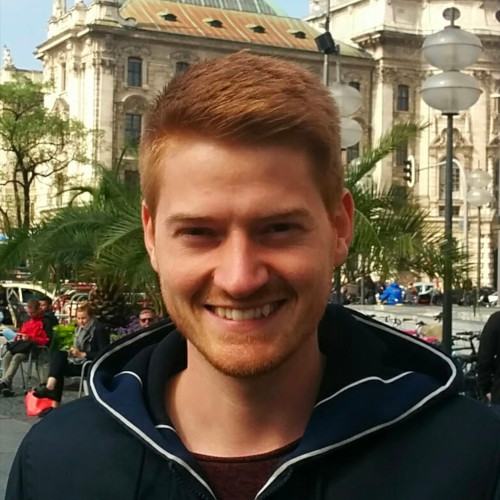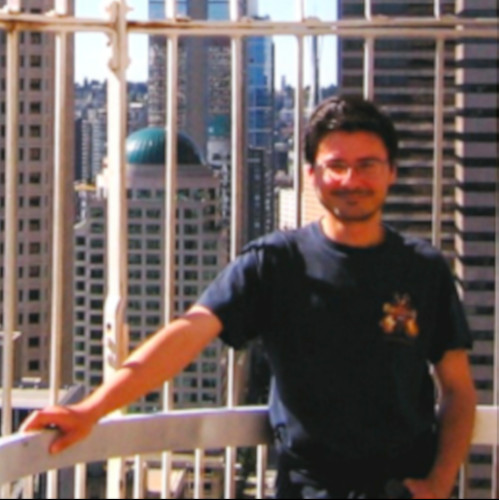Summary
Many of the successes in deep learning build upon rich supervision. Reinforcement learning (RL) is no exception to this: algorithms for locomotion, manipulation, and game playing often rely on carefully crafted reward functions that guide the agent. But defining dense rewards becomes impractical for complex tasks. Moreover, attempts to do so frequently result in agents exploiting human error in the specification. To scale RL to the next level of difficulty, agents will have to learn autonomously in the absence of rewards.
We define task-agnostic reinforcement learning (TARL) as learning in an environment without rewards to later quickly solve down-steam tasks. Active research questions in TARL include designing objectives for intrinsic motivation and exploration, learning unsupervised task or goal spaces, global exploration, learning world models, and unsupervised skill discovery. The main goal of this workshop is to bring together researchers in RL and investigate novel directions to learning task-agnostic representations with the objective of advancing the field towards more scalable and effective solutions in RL.
We invite paper submissions in the following categories to present at the workshop:
- Unsupervised objectives for agents
- Curiosity and intrinsic motivation
- Few shot reinforcement learning
- Model-based planning and exploration
- Representation learning for planning
- Learning unsupervised goal spaces
- Unsupervised skill discovery
- Evaluation of unsupervised agents
Speakers
Dates
| Event | Date |
|---|---|
| Submission deadline | 29 March 2019 (11:59 pm AOE) |
| Notifications | 23 April 2019 |
| Camera ready | 04 May 2019 (11:59 pm AOE) |
| Workshop | 06 May 2019 |
Sponsors
We thank our sponsors for making this workshop possible:
Schedule
Please find our recorded livestream here: https://slideslive.com/iclr/iclr-2019-r09-taskagnostic-reinforcement-learning-tarl
| Time | Event |
|---|---|
| 09:45 | Opening |
| 09:50 | Invited talk – Martin Riedmiller: Internal Reward Predicates for Task Agnostic RL |
| 10:20 | Lightning talks |
| 10:30 | Posters + Coffee break |
| 11:00 | Invited talk – Chelsea Finn: What can we Learn from Unlabeled Interaction? |
| 11:30 | Invited talk – Doina Precup: Generalized Value Functions: Knowledge Representation for RL agents |
| 12:00 | Contributed talk – Vitchyr Pong: Skew-Fit: State-Covering Self-Supervised Reinforcement Learning |
| 12:15 | Contributed talk – Lisa Lee: State Marginal Matching with Mixtures of Policies |
| 12:30 | Invited talk – Katja Hofmann: Directions and Challenges in Multi-Task Reinforcement Learning |
| 13:00 | Lunch break |
| 15:20 | Contributed talk – Corey Lynch: Learning Latent Plans from Play Data |
| 15:35 | Contributed talk – Hugo Caselles-Dupré: Symmetry-Based Disentangled Representation Learning requires Interaction with Environments |
| 15:50 | Lightning talks |
| 16:00 | Posters + Coffee break |
| 16:30 | Invited talk – Pierre-Yves Oudeyer: Curiosity-driven exploration of learned goal spaces: Discovering independently controllable features |
| 17:00 | Invited talk – Neil Bramley: Intuitive experimentation in human and artificial agents |
| 17:30 | Panel discussion |
| 18:00 | End |
Submissions
Papers should be in anonymous ICLR style and up to 5 pages, with an unlimited number of pages for references and appendix. Accepted papers will be presented during our poster session and made available on the workshop website. Selected authors will be offered a 10 min talk at the workshop. This does not constitute an archival publication and no formal workshop proceedings will be made available, meaning contributors are free to publish their work at journals or conferences.
Submissions are now closed. Thanks to everyone for submitting!
Paper portal: https://cmt3.research.microsoft.com/tarl2019
Accepted papers
We’ve received many interesting and high-quality submissions, out of which we accepted 24 papers to be presented at our poster sessions. The order below was selected randomly and the PDFs will be made available here shortly.
State Marginal Matching with Mixtures of Policies
Lisa Lee, Emilio Parisotto, Ben Eysenbach, Ruslan Salakhutdinov, Sergey Levine
Reinforcement Learning with Unknown Reward Functions
Ben Eysenbach, Jacob Tyo, Shixiang Gu, Ruslan Salakhutdinov, Zachary Lipton, Sergey Levine
Planning with Goal-Conditioned Policies
Soroush Nasiriany, Vitchyr Pong, Sergey Levine
Continual and Multi-Task Reinforcement Learning with Shared Episodic Memory
Artem Sorokin, Mikhail Burtsev
A Self-Supervised Method for Mapping Instructions to Robot Policies
Hsin-Wei Yu, Po-Yu Wu, Chih-An Tsao, You-An Shen, Shih-Hsuan Lin, Zhang-Wei Hong, Yi-Hsiang Chang, Chun-Yi Lee
Dynamics-Aware Unsupervised Skill Learning
Archit Sharma, Shixiang Gu, Karol Hausman, Sergey Levine, Vikash Kumar
Hierarchical Policy Learning is Sensitive to Goal Space Design
Zach Dwiel, Madhavun Candadai, Mariano Phielipp, Arjun Bansal
Unsupervised Discovery of Decision States through Intrinsic Control
Nirbhay Modhe, Mohit Sharma, Prithvijit Chattopadhyay, Abhishek Das, Devi Parikh, Dhruv Batra, Ramakrishna Vedantam
Insights on Visual Representations for Embodied Navigation Tasks
Erik Wijmans, Julian Straub, Dhruv Batra, Judy Hoffman, Ari Morcos
Variational State Encoding as Intrinsic Motivation in Reinforcement Learning
Martin Klissarov, Riashat Islam, Khimya Khetarpal, Doina Precup
Learning Latent Plans from Play Data
Corey Lynch, Mohi Khansari, Ted Xiao, Vikash Kumar, Jonathan Tompson, Sergey Levine, Pierre Sermanet
Exploration via Sample-Efficient Subgoal Design
Yijia Wang, Brian Bell, Matthias Poloczek, Daniel Jiang
Exploration via Flow-Based Intrinsic Rewards
Hsuan-Kung Yang, Po-Han Chiang, Min-Fong Hong, Chun-Yi Lee
Learning to Plan via Neural Exploration-Exploitation Trees
Binghong Chen, Bo Dai, Le Song
KeyIn: Discovering Subgoal Structure with Keyframe-based Video Prediction
Karl Pertsch, Oleh Rybkin, Jingyun Yang, Konstantinos Derpanis, Joseph Lim, Kostas Daniilidis, Andrew Jaegle
Task-Agnostic Constraining in Average Reward POMDPs
Guido Montufar, Johannes Rauh, Nihat Ay
Learning Robotic Manipulation Through Visual Planning and Acting
Angelina Wang, Thanard Kurutach, Kara Liu, Aviv Tamar, Pieter Abbeel
Automatic Curriculum Generation Via Task Perturbations For Reinforcement Learning
Srinivas Venkattaramanujam, Riashat Islam, Doina Precup
Symmetry-Based Disentangled Representation Learning requires Interaction with Environments
Hugo Caselles-Dupré, David Filliat, Michael Garcia Ortiz
Control What You Can: Intrinsically Motivated Reinforcement Learner with Task Planning Structure
Sebastian Blaes, Marin Vlastelica, Jia-Jie Zhu, Georg Martius
Training Dynamics Models for Accurate Long-Horizon Prediction
Ethan Knight, Joshua Achiam
Skew-Fit: State-Covering Self-Supervised Reinforcement Learning
Vitchyr Pong, Murtaza Dalal, Steven Lin, Ashvin Nair, Shikhar Bahl, Sergey Levine
Unsupervised Representation Learning by Latent Plans
Ge Yang, Amy Zhang, Ari Morcos, Roberto Calandra
Organizers
For questions, please contact us at: taskagnosticrl@gmail.com




















